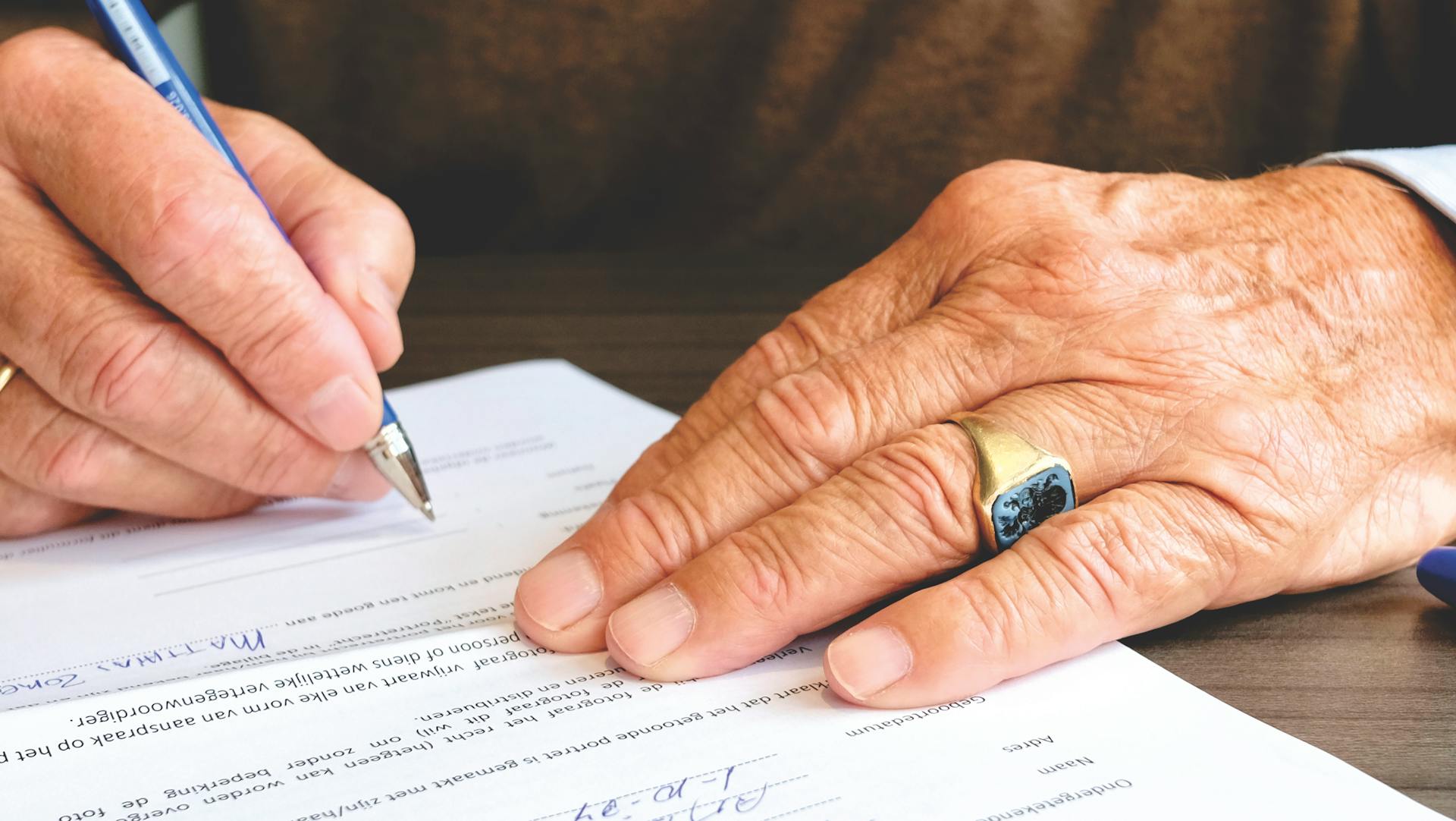
Your brakes are one of the most important parts of your vehicle, so it’s important to make sure they are always in good working order. One way to do this is to have them checked regularly.
How often you should have your brakes checked will depend on a few factors, including how often you use your car, the type of driving you do, and the condition of your brakes. The general rule of thumb is to have your brakes checked every 12,000 miles or so, but it’s always best to consult your owner’s manual or a qualified mechanic to be sure.
If you do a lot of stop-and-go driving or carry heavy loads in your car, you may need to have your brakes checked more often. The same goes for if you live in an area with a lot of hills or if you do a lot of high-speed driving.
It’s also important to keep an eye on your brakes and be on the lookout for any signs that they may need to be checked or replaced. If you notice any strange noises coming from your brakes, if your car is pulling to one side when you brake, or if your brake pedal feels “spongy” when you press it, these could be signs that there is a problem with your brakes and they should be inspected as soon as possible.
So, how often should you have your brakes checked? The answer will vary depending on your individual driving habits and the condition of your brakes, but a good rule of thumb is to have them checked every 12,000 miles or so. By being proactive and keeping an eye on your brakes, you can help ensure that they always stop you safely.
Readers also liked: How Many Brakes Does a Car Have?
What are the consequences of not having your brakes checked?
Not having your brakes checked can have a number of consequences. The most serious is that it can lead to an accident. If your brakes are not working properly, you may not be able to stop in time to avoid a collision. This could result in serious injuries or even death.
Another consequence of not having your brakes checked is that it can cause damage to your vehicle. If your brakes are not working properly, they will have to work harder to stop your car. This can cause wear and tear on the brake pads and other components, which can eventually lead to costly repairs.
Lastly, not having your brakes checked can also lead to a loss of control of your vehicle. If your brakes are not working properly, you may not be able to slow down or stop as quickly as you want. This could cause you to lose control of your car, which could lead to an accident.
So, as you can see, there are a number of consequences of not having your brakes checked. These range from the relatively minor, such as increased wear and tear on your vehicle, to the more serious, such as an accident. If you want to avoid these consequences, it is important to have your brakes checked on a regular basis.
How can you tell if your brakes are wearing out?
If you're unsure whether or not your brakes are wearing out, there are a few telling signs you can look out for. For starters, if your car takes longer to stop than it used to, or if you have to press the pedal further down to engage the brakes, that's an indication that they may be worn. Additionally, if you Hear a squealing noise when you press the brakes, that's another sign that they need to be replaced. Finally, if you can see visible wear on the brake pads or rotors, it's time to get them checked out.
If you notice any of these signs, it's important to have your brakes inspected by a qualified mechanic as soon as possible. Brakes are one of the most important safety features on your car, so it's crucial to make sure they're in good condition. If your brakes are severely worn, you may need to replace the pads and/or rotors, which can be costly. However, it's always worth it to ensure your safety on the road.
Worth a look: Brake Pads
How often should you replace your brake pads?
The average lifespan of a brake pad is about 30,000 miles. However, this number will vary depending on factors such as the vehicle's make and model, driving habits, and the quality of the brake pads. For example, if you frequently drive in stop-and-go traffic or live in a hilly area, your brake pads will wear down faster and will need to be replaced more often.
If you keep up with routine maintenance on your vehicle, you should be able to replace your brake pads before they wear completely down. However, if you wait until your brake pads are worn down to the metal, you risk damaging your brake rotors, which will require more extensive and expensive repairs.
To avoid costly repairs, it is best to replace your brake pads as soon as you notice they are getting thin. You can check your brake pads yourself by looking at the thickness of the pad material or by consulting your vehicle's manual. If you're not sure how to check your brake pads, you can always take your vehicle to a qualified mechanic for an inspection.
Here's an interesting read: Brake Pad
What are the signs that your brake rotors need to be replaced?
The brake rotors on a car are an important part of the braking system. They are the discs that the brake pads clamp down on to create the friction that slows and stops the wheels from rotating. When the brake pads wear down, they don’t have as much contact with the rotor, and this can lead to reduced braking power. In extreme cases, it can even cause the brake pads to break completely, leaving the metal backing plate to grind against the rotor. This will cause a lot of noise and can damage the rotor.
There are a few different signs that can indicate that the brake rotors need to be replaced. One is if the car starts to vibrate when the brakes are applied. This can be caused by the rotors being warped from excessive heat. The vibration will usually be most noticeable when the brakes are applied at high speeds. Another sign of worn rotors is if the brake pedal pulsates when pressed. This can also be caused by warped rotors, but can also be caused by the pads being worn down unevenly.
If the rotors are worn down too much, they can start to create a groove in the pad. This is known as “groove wear” and can cause the pads to become uneven, which will create more vibration. This can also lead to the pads becoming stuck in the groove and not making contact with the rotor at all, which will cause the brakes to fail.
If you think that your brake rotors may need to be replaced, it’s important to have them checked by a qualified mechanic as soon as possible. Worn rotors can cause reduced braking power and can increase the risk of an accident.
How much does it cost to have your brakes checked?
It is important to have your brakes checked regularly to ensure they are functioning properly. Depending on the make and model of your vehicle, the frequency with which you should have your brakes checked will vary. However, as a general rule, it is a good idea to have your brakes checked at least once a year.
There are a few different things that a mechanic will do when checking your brakes. They will first visually inspect the brake pads and discs to look for any signs of wear and tear. They will then check the brake fluid level and condition, and finally they will test the brakes themselves to make sure they are working as they should.
The cost of having your brakes checked will vary depending on where you take your vehicle. However, you can expect to pay anywhere from $50 to $100 for a basic brake check. If any repairs or replacements need to be made, the cost will obviously be higher.
It is important to note that you should never wait until your brakes are completely worn out before having them checked or replaced. This could result in serious damage to your vehicle, and could even be dangerous. If you think there may be an issue with your brakes, it is always best to err on the side of caution and take your vehicle in for a brake check as soon as possible.
Here's an interesting read: Hearing Checked
How much does it cost to replace brake pads?
The cost of brake pad replacement depends on the make and model of your vehicle, as well as the type of pads you choose. Depending on these factors, the average cost of brake pad replacement can range from $100 to $300 per axle.
If you have a older vehicle, or one that is not driven frequently, you may be able to get by with less expensive semi-metallic brake pads. However, if you have a newer vehicle or one that is driven frequently, you'll likely need to spend a bit more for ceramic brake pads, which offer superior performance and longevity.
To get an accurate estimate of the cost to replace brake pads on your specific vehicle, it's best to consult a qualified mechanic or brake specialist. However, in general, you can expect to spend anywhere from $100 to $300 per axle for brake pad replacement.
How much does it cost to replace brake rotors?
It costs anywhere from $100-$350 to replace brake rotors. The price depends on the make and model of the vehicle, and whether the rotors need to be replaced in pairs. Labor costs are usually around $100 and the parts themselves typically cost $200-$250. If you need to replace your brake rotors, it's best to get a quote from a mechanic or dealership to find out the exact cost.
Consider reading: How Often Do You Need Juvederm?
Is it worth it to have your brakes checked regularly?
Most people would say that it is worth it to have your brakes checked regularly in order to avoid any accidents or mishaps on the road. After all, your brakes are one of the most important safety features on your vehicle. However, there are some people who might argue that it is not worth the time or money to have your brakes checked regularly. Here, we will explore both sides of the argument to help you make an informed decision.
Those who argue that it is worth it to have your brakes checked regularly typically do so for safety reasons. Your brakes are what allow you to stop your vehicle, and if they are not functioning properly, it could lead to an accident. This is especially true if you live in an area with a lot of traffic or if you drive in hazardous conditions often. Having your brakes checked by a professional can help to ensure that they are in good condition and will work properly when you need them to.
On the other hand, some people argue that it is not worth it to have your brakes checked regularly because it is not a necessary service. If your brakes are working properly, then there is no need to have them checked. This argument is typically based on the fact that regular brake checks can be expensive, and if your brakes are not causing any problems, then there is no need to spend the money. Additionally, if you are not having any issues with your brakes, then you may not even notice if there is a problem until it is too late.
So, what is the verdict? Is it worth it to have your brakes checked regularly? Ultimately, this is a decision that you will need to make based on your own personal circumstances. If you are someone who drives in hazardous conditions or in a high-traffic area, then it may be worth it to have your brakes checked more often. However, if you are not having any problems with your brakes and you are on a budget, then you may not need to have them checked as often.
A different take: Free Checking Account No Credit Check No Deposit
Frequently Asked Questions
How do you know when to replace brake rotors?
Brake rotor life is typically around 100,000 miles, but will vary depending on driving habits and types of brake pads.
What are the signs you need to know about your brakes?
If you see any of the following signs, it’s time to take your car in for a brake inspection: Your brakes are making weird noises when you press on them. This could be a sign that the rotors are starting to wear down and need to be replaced. You see a lot of rust on the rotor or caliper. This means that the metal is corroding and will eventually break down, causing your brakes to stop working altogether. The pads appear to be getting discs unevenly and there’s visible grooves left from where they were struck before. This means that your brake pads may not be lasting as long as they should and will need to be replaced soon.
Why is it important to replace the rotors on your car?
If the rotors on your car are worn out, it can cause the brakes to stop working properly. When the brakes stop working, it increases the risk of accident. Additionally, when the rotors are worn out, they can start to crack, which can lead to even more dangerous Breaks. How do you know if you need to replace your motor vehicle brake rotors? One way to know if you need to replace your motor vehicle brake rotors is if they start to show signs of wear. Another indicator that you may need to get new rotors is if you have a lot of brake pedal issues or if you experience a sudden loss of braking ability.
What are the symptoms of bad rotors on a car?
Symptoms of rotor malfunction can vary depending on the severity, but may include: • Squealing or squeaking sound when brakes are applied • Worn-out or warped rotors • Bad braking performance
Do brake pads need to be replaced when replacing rotors?
When you replace your rotors, you should also replace your brake pads.
Sources
- https://brakepadblog.com/how-do-i-know-if-my-brake-pads-are-worn-out/
- https://www.gregs.com/often-get-brakes-checked/
- https://knowhow.napaonline.com/how-often-should-brake-pads-be-replaced/
- https://mechanicbase.com/brakes/worn-brake-pads-symptoms/
- https://www.minit-tune.com/blog/6-signs-that-you-need-your-brakes-checked
- https://www.quora.com/What-are-the-consequences-of-having-under-inflated-tires-and-brakes-that-are-not-working-properly-at-the-same-time-on-an-automobile
- https://www.quora.com/How-often-should-you-check-your-brakes
- https://boyceautorepair.com/5-signs-you-need-brake-and-rotor-replacement/
- https://www.allcarleasing.co.uk/blog/brake-checking/
- https://brakeshub.com/how-to-know-when-you-need-new-brakes/
- https://www.cartalk.com/car-owning/how-much-do-brakes-cost
- https://www.sweeneycars.com/blog/how-often-should-you-check-your-brakes-car-brake-maintenance/
- https://www.expertcarcareinc.com/blog/how-often-should-you-check-your-brakes
- https://mechanicbase.com/brakes/when-should-you-replace-your-brake-rotors/
Featured Images: pexels.com


